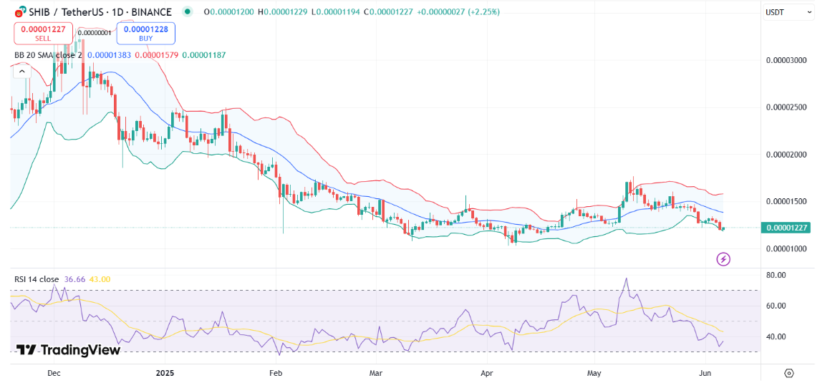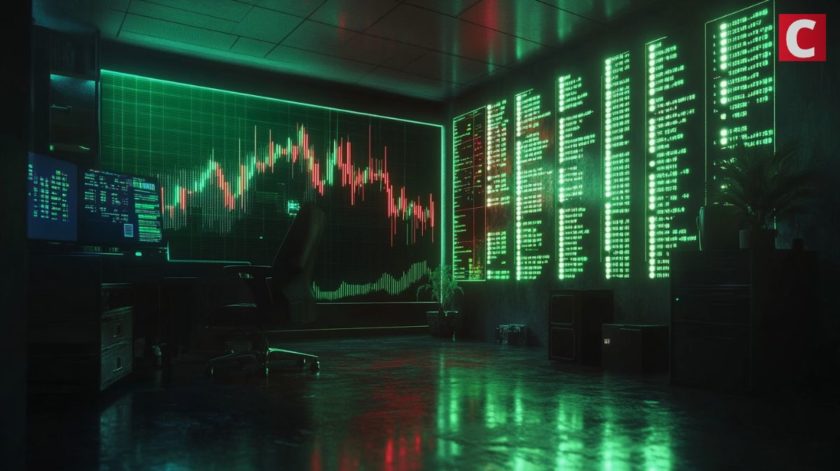It’s been weeks since ether has seen a new high or a new low and the market has found itself range-bound. At the moment, we are seeing signs of distribution as large rounds of selling have remained present during key support tests:
Figure 1: ETHUSD, 4 Hour Candles, Trading Range
So far, for the last few weeks, ether has seen a trend of higher lows and low highs (the converging red trendlines). The three arrows shown above display the presence of heavy selling pressure (supply) and, so far, the market has failed to garner enough buying pressure (demand) to bring the price level back above the AR level shown above and buying pressure seems to be waning. The lower boundary of the trading range (the dark blue line) has proven to be strong support and the last week’s trend has seen relatively higher highs and higher lows. However, some key levels need to be monitored.
The high volatility and the high volume associated with the volatility is showing signs that the trading range might be in distribution. However, it’s still fairly early in this trading range’s life cycle and its entire possible this most recent strong round of selling is a test of demand.

After the Sign of Weakness (SOW) last week, the market saw a retest of the trading range support and it had a very strong reaction to the test (shown in pink). A high volume reaction to a support retest is typically a sign that we may see the top of the trading range to further test the supply of the market. Whether this trading range reveals itself to be a distribution or an accumulation, it’s entirely possible we will see a test of the preliminary supply (PSY) level in the $230 prices. Often with trading ranges (whether accumulation or distribution) we see multiple supply and demand tests of the top and bottom of the range. Since we had a strong buying reaction to our retest, it makes sense that we will see the upper boundary of the range to test not only the market demand but the presence of supply.
On a macro level, this marks our second test of the current support level. The last macro ether consolidation was initiated at the price level and it provided very strong support through many months of tests. Because of its historical significance during ether’s last bull market, I find it unlikely that we would break straight support with such relative ease.
Much like the rest of the crypto market, we are basically playing the waiting game while etherbitcoin decides what it wants to do. It’s not entirely clear whether the support will hold or whether it will break, but ether is sitting atop macro support that has held through many tests. A decisive break below this level will be violent. However, if we can establish firm support here, it’s entirely possible ether has found its local bottom in an otherwise macro reversal.
Summary:
- Ether has been range bound for several weeks while the price and volume has consolidated in a sideways fashion.
- On a macro level, we are testing strong, historic support that has held through many tests in the past.
- We are currently showing signs of distribution but, on the last retest of our current trading range’s support, saw a strong round of buys that may warrant another supply test near the top of the trading range.
- Because the current support level has held for so long, a decisive break below this level will likely see a strong, violent reaction that shoves the price aggressively lower. However, if we manage to maintain support, it’s entirely possible ether has seen its macro bottom for the current bear market.
Trading and investing in digital assets like bitcoin and ether is highly speculative and comes with many risks. This analysis is for informational purposes and should not be considered investment advice. Statements and financial information on Bitcoin Magazine and BTC Media related sites do not necessarily reflect the opinion of BTC Media and should not be construed as an endorsement or recommendation to buy, sell or hold. Past performance is not necessarily indicative of future results.




